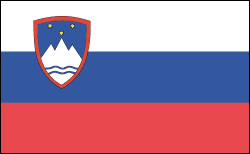- / Countries of the World
- / history
Slovenia History

Index
Slovenia Peacefully Gains Independence From Yugoslavia
In the 1980s, Slovenia agitated for greater autonomy and occasionally threatened to secede. It introduced a multiparty system and in 1990 elected a non-Communist government. Slovenia declared its independence from Yugoslavia on June 25, 1991. The Serbian-dominated Yugoslavian army tried to keep Slovenia in line and some brief fighting took place, but the army then withdrew its forces. Unlike Croatia and Bosnia, Slovenia was able to sever itself from Yugoslavia with relatively little violence. With recognition of its independence granted by the European Community in 1992, the country began realigning its economy and society toward western Europe. Slovenia joined the EU and NATO in 2004.
In a surprise upset, the center-right Slovenian Democrats (SDS) leader Janez Jansa won in Oct. 2004 elections. Prime Minister Anton Rop, of the Liberal Democratic Party (LDS), conceded defeat. LDS had been in power for most of the previous 12 years. Slovenia changed its currency to the euro on Jan. 1, 2007, becoming the first former Communist country to do so.
In the second round of 2007's presidential elections in November, Danilo Türk, a leftist former diplomat who spent much of his career abroad, took 68.3% of the vote, well ahead of former prime minister Lojze Peterle's 31.7%. Türk's breeze to victory suggested that Slovenians have grown weary of Jansa's conservative administration. The post of president in Slovenia is largely ceremonial.
In January 2008, Slovenia became the first former communist nation to assume the EU presidency.
In November 2008, Borut Pahor was named prime minister, ending four years in government of a centre-right coalition under Janez Jansa. The parliament approved the nomination on November 7 (59-24). On November 11, Pahor announced his cabinet (subject to approval by parliament) with Samuel Zbogar as foreign minister, Ljubica Jelusic as defense minister, Franci Krizanic as finance minister, and Katarina Kresal as interior minister.
After losing (51–36) in a confidence vote in Sept. 2011, Prime Minister Borut Pahor's government suffered another blow in December, coming in third in parlimentary elections with just over 10% of the vote. Zoran Jankovic's Positive Slovenia won 29.5% of the vote against 25.9% for ex-PM Janez Jansa's Slovenia Democratic Party (SDS) in a surprise upset. Turnout was 63 %.
